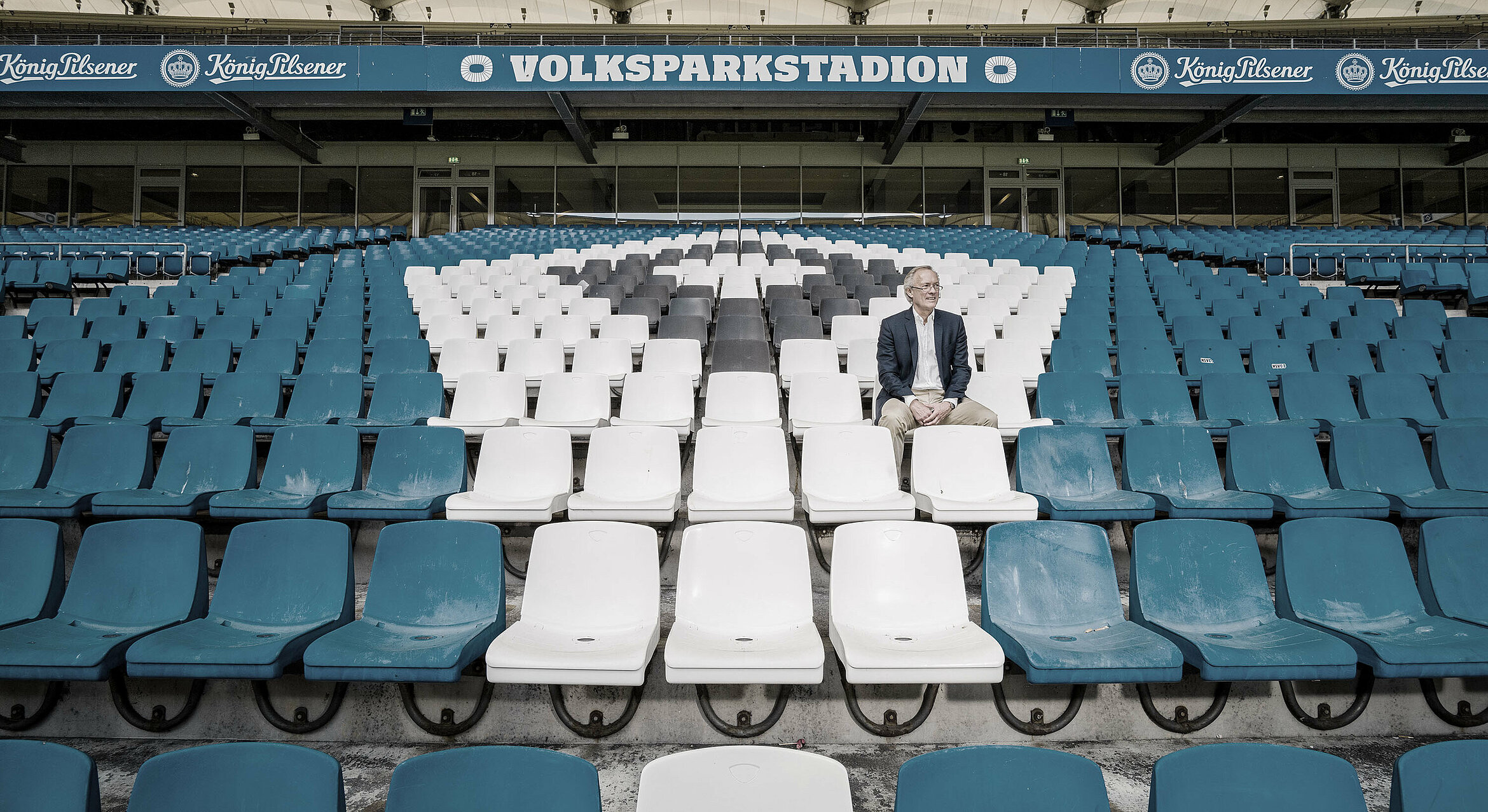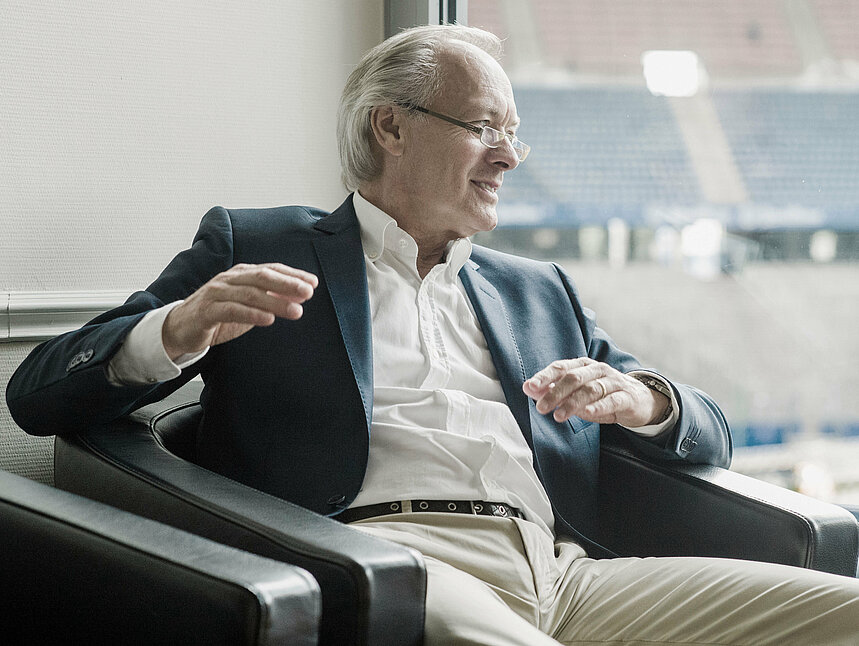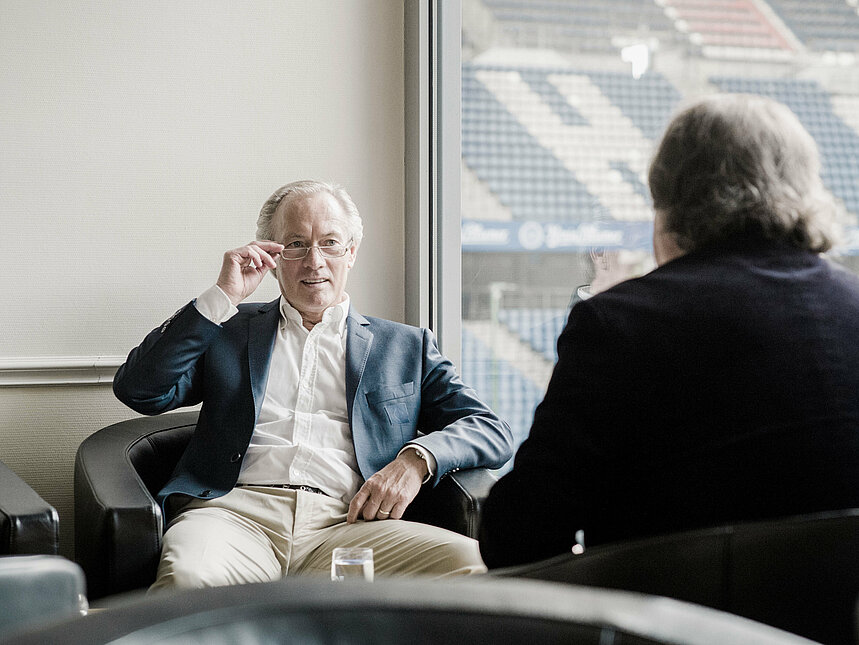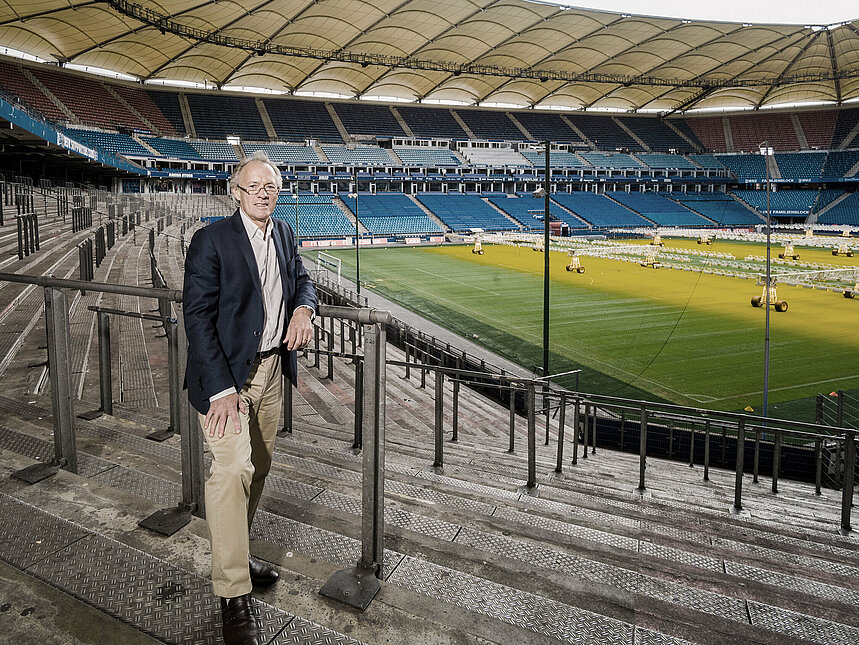
Bernd Wehmeyer
Between 1978 and 1985, Bernd Wehmeyer pulled on the Hamburger SV jersey a total of 183 times, winning the German championship on three occasions. In the 1983 European Cup final in Athens, HSV beat the red-hot favourites Juventus, bringing the trophy home to the banks of the Elbe – and sending Hamburg absolutely wild. Felix Magath scored the winning goal, while coach Ernst Happel and manager Günter Netzer masterminded the rise of Hamburger SV to become a world-class team. Just about everyone in Hamburg had the club’s diamond badge on their chest!
The incredible victory propelled the entire team to immortality – including Bernd Wehmeyer. However, immortality soon turned out to be little more than words, as Wehmeyer – an elite athlete who had never smoked, (almost) always followed a healthy diet, remained at an ideal weight (75kg at 1.76m tall) and hardly ever drank alcohol – found himself in a life-threatening situation.
From bruises to knee injuries, Bernd Wehmeyer had experienced his share of injuries down the years. However, on 3 October 2011, the man nicknamed ‘Fummels’ found death knocking at his door.
Wehmeyer remembers that day vividly. As he thinks back, he shifts restlessly in his chair and takes a sip from a glass of water. Wehmeyer was jogging when he felt pressure in the region around his collarbone. “I didn’t have any stabbing pains in my chest or pain in my arm, but I realised that something wasn’t quite right. So, I drove to the University Medical Centre Hamburg-Eppendorf (UKE).” And how lucky he did – one of his coronary arteries was blocked, a textbook heart attack. Wehmeyer underwent immediate surgery and was fitted with a stent – a small, grid-like graft that helps to widen constricted coronary vessels. The stent saved Wehmeyer, who had a lucky escape.
However, as is often the case when a patient is seriously ill, the doctors took a closer look at his case. Was there something else going on? As it happened, Wehmeyer’s PSA level was elevated. The PSA level indicates the amount of prostate-specific antigen in a patient’s blood. If it is elevated, it can be a sign of prostate carcinoma – though it can also have other causes. Only three-in-ten patients with an elevated PSA level turn out to have prostate cancer. Wehmeyer made an appointment at the Martini-Klinik. His wife, Almuth, accompanied him as Prof. Dr. Markus Graefen delivered the diagnosis: early-stage prostate cancer. The cancer had not yet spread and localised removal was possible. Graefen recommended surgery to remove Wehmeyer’s prostate. The prostate is an organ around the same size and shape as a chestnut, embedded between layers of tissue and bundles of nerve fibres directly below the urinary bladder. Its primary role is forming a secretion that makes up a large part of seminal fluid.
“I could feel him, death, knocking at the door again.”
As he thinks back to January 2012, Bernd Wehmeyer closes his eyes for a few seconds. “A merciless strike,” he says. Nevertheless, giving up was never an option for Wehmeyer. “As a sportsman, I was used to fighting, never giving the ball away. Prof. Graefen told me that I had a chance. So, I just kept telling myself, don’t let your head drop.” He told HSV that he would be taking a period of leave from his role as Sporting Director. And then there were his own anxieties. “Of course, you ask yourself questions. What will happen afterwards? Will I have to wear adult nappies? But in a situation like that, your priorities shift: you think more about survival than your potency. Getting cured is the be-all and end-all.” The specialists at the Martini-Klinik were able to give Bernd Wehmeyer everything he and his wife could have asked for. They cured his cancer, preserved his continence and preserved his potency – a perfect hat-trick.


Bernd Wehmeyer gives an interview to Hans-Heinrich Reichelt at the Volksparkstadion, home to Hamburger SV.

And today?
“I still haven’t regained complete trust in my own body. I listen to it a lot more closely. Whenever I feel a twinge, I wonder: what could that be…?”
Besides listening more intently to his body, Wehmeyer radiates energy. He appears vital and thoroughly healthy, including as an ambassador for HSV, a role he has held for several years. So, has his life changed? He smiles. “No, no. I’ve always lived a very healthy life in truth, done lots of exercise. I’m paying more attention to what I eat nowadays. Less meat, more fish. Instead of a bratwurst, I might opt for an apple. Most importantly, I always start my day with 45 minutes on the cross-trainer to work up a real sweat. Then I eat my breakfast in peace: muesli with fruit, nuts and a slice of dark rye bread. Then I’m ready to face the day.”
And does Wehmeyer still work 10 to 12-hour days as he did before his encounter with cancer and his heart attack? “Sort of,” he says. His medication (blood thinners and medication to reduce his blood pressure and cholesterol levels) come with certain restrictions, and he also tends to avoid business trips now. Wehmeyer flew out to Dubai, where he oversaw the HSV training camp, but opted against joining the team on their visit to Fuerteventura in the Canary Islands. “I used to go every year. I love the long beaches and the sea. But if something were to happen to me out there, I’d be up a creek without a paddle.”
Some people retire when they turn 65 – and, if they had suffered a heart attack and prostate cancer at 60, they might well retire earlier. Wehmeyer turned 65 in June. So, is he thinking of stepping back? After dedicating the last 40 years of his life to Hamburger SV, both on and off the pitch, does he harbour dreams of relaxing into retirement and golfing with other pensioners? He shakes his head energetically. “No, no, I really enjoy my work. And it’s good for me, too: HSV is the best medicine for me.” He still wears Hamburger SV’s iconic diamond badge on his chest – and in his heart.